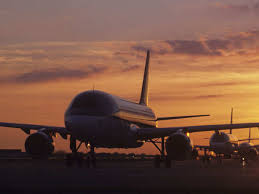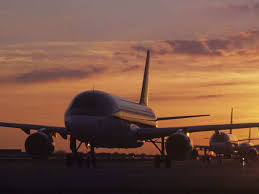
The forecast for the global airline industry was downgraded by the largest global body of the industry on Tuesday because of a second wave of coronavirus infections and restrictions and shutdown being implemented in the major markets and warned that this year and next, the global airlines industry is on course to make a loss of a total of $157 billion.
In June, forecast of losses of $100 billion for the current year and the next for global airline industry was made by the International Air Transport Association (IATA)m which the organization has now increased to a projected loss of $118.5 billion in this year alone and an additional loss of $38.7 billion was forecast for the next year.
Despite upbeat news on the development of multiple Covid-19 vaccines whose doses will be continued to be distributed throughout the next year, the challenges still facing the aviation sector was underscored by this latest bleak outlook of the IATA.
"The positive impact it will have on the economy and air traffic will not happen massively before mid-2021," IATA Director General Alexandre de Juniac said.
The organization expects a drop in passenger numbers this year to 1.8 billion compared to 4.5 billion in 2019, estimated the IATA, while also forecasting a recovery in the number next year to 2.8 billion. The organization also forecast a 69 per cent drop in passenger revenues for 2020 at $191 billion.
A combination of Covid-19 testing and vaccine deployment is expected to result in some re-opening of borders by the middle of next year, the IATA also forecast.
Governments were also urged to replace quarantine regimes that virtually stop travelling with widespread testing programmes, the IATA reiterated.
"We are seeing states progressively coming to listen to us," de Juniac said, citing testing initiatives underway in France, Germany, Italy, Britain, the United States and Singapore.
According to de Juniac, the approach taken by some governments and airlines such as Australia's Qantas who have said that for long-haul travel passengers are likely to require vaccination, such a strategy is not likely to be effective everywhere.
"It would prevent people who are refusing (the vaccine) from travelling," the IATA chief said. "Systematic testing is even more critical to reopen borders than the vaccine."
The only positive side of the aviation industry has been the air cargo business, which has seen a rise in freight prices because of the grounding of flights, and the IATA said that this business segment will likely see a 15 per cent rise in global revenue to $117.7 billion this year even though there will be an 11.6 per cent drop in in volume to 54.2 million tonnes.
(Source:www.usnews.com)
In June, forecast of losses of $100 billion for the current year and the next for global airline industry was made by the International Air Transport Association (IATA)m which the organization has now increased to a projected loss of $118.5 billion in this year alone and an additional loss of $38.7 billion was forecast for the next year.
Despite upbeat news on the development of multiple Covid-19 vaccines whose doses will be continued to be distributed throughout the next year, the challenges still facing the aviation sector was underscored by this latest bleak outlook of the IATA.
"The positive impact it will have on the economy and air traffic will not happen massively before mid-2021," IATA Director General Alexandre de Juniac said.
The organization expects a drop in passenger numbers this year to 1.8 billion compared to 4.5 billion in 2019, estimated the IATA, while also forecasting a recovery in the number next year to 2.8 billion. The organization also forecast a 69 per cent drop in passenger revenues for 2020 at $191 billion.
A combination of Covid-19 testing and vaccine deployment is expected to result in some re-opening of borders by the middle of next year, the IATA also forecast.
Governments were also urged to replace quarantine regimes that virtually stop travelling with widespread testing programmes, the IATA reiterated.
"We are seeing states progressively coming to listen to us," de Juniac said, citing testing initiatives underway in France, Germany, Italy, Britain, the United States and Singapore.
According to de Juniac, the approach taken by some governments and airlines such as Australia's Qantas who have said that for long-haul travel passengers are likely to require vaccination, such a strategy is not likely to be effective everywhere.
"It would prevent people who are refusing (the vaccine) from travelling," the IATA chief said. "Systematic testing is even more critical to reopen borders than the vaccine."
The only positive side of the aviation industry has been the air cargo business, which has seen a rise in freight prices because of the grounding of flights, and the IATA said that this business segment will likely see a 15 per cent rise in global revenue to $117.7 billion this year even though there will be an 11.6 per cent drop in in volume to 54.2 million tonnes.
(Source:www.usnews.com)














